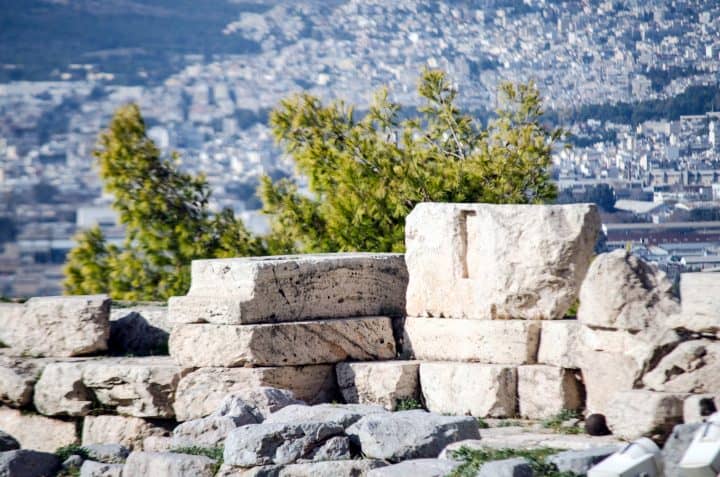 The mines of Laurion, which are located about thirty miles south of Athens, Greece, have played a significant role in ancient history, particularly to the Athenian city-state. Without the generous amounts of silver extracted from the mines, Athens may have never defeated the invading Persian Empire in 480 B.C. If that war had resulted in a victory for Persia, the world as we now know it may not exist. In fact, many believe that these mines are one of the reasons why Athens become one of the strongest city-states in Ancient Greece in the first place. Here’s more information about them:
The mines of Laurion, which are located about thirty miles south of Athens, Greece, have played a significant role in ancient history, particularly to the Athenian city-state. Without the generous amounts of silver extracted from the mines, Athens may have never defeated the invading Persian Empire in 480 B.C. If that war had resulted in a victory for Persia, the world as we now know it may not exist. In fact, many believe that these mines are one of the reasons why Athens become one of the strongest city-states in Ancient Greece in the first place. Here’s more information about them:
Early History of the Mines
Archaeologists believe the mines of Laurion were being exploited centuries before the Greeks by Bronze Age peoples. It is known that silver and lead were being taken from the mines as far back as 3,200 B.C. Scientists know this because they have detected the isotopic signature of Laurion mine metals in objects know to have been constructed in the Late Neolithic period.
However, the true exploitation of the Laurion mines began around the 6th Century B.C. By the 5th Century B.C., the sliver obtained from the mines was a significant source of wealth for the city-state of Athens. Even though the mines enriched the economy of Athens, the way this natural wealth was obtained produced massive suffering. Mining operations mean the enslavement and deaths of tens of thousands of people, including children, used as slave labor.
Pisistratus was a tyrant that history credits with being an enlightened advocate for the poor, but he also instituted an aggressive campaign to ramp up the production of the mines of Laurion. Pisistratus ordered deep shafts to be driven into the ground and galleries established by slaves who worked under brutal conditions of extremely hard labor and danger underground. Slaves were chained, worked naked and were branded and beaten as they toiled to early deaths in the mines.
Athens Needed Silver to Defend Itself
The large amount of silver obtained from the mines of Laurion enabled Athens to accrue the money it needed to defend the city-state. In the build-up to the second invasion of Greece by the Persian Empire, Athens tapped into its haul of 100 talents of silver to build 200 triremes, warships that it would use to beat back the massive invading force of King Xerxes I.
Athens was an early model of democracy that has influenced western civilization ever since. If it had been conquered and subjugated by the militaristic Persian empire, the concept of democracy may have been extinguished before it could take hold. The silver from the mines of Laurion can be said to have played a role of letting democratic systems of government go forward.
The mines were eventually abandoned, but modern mining techniques enabled the shafts to be reopened in 1864. Tons of slag and more silver was recovered until about 1930. Iron was subsequently discovered and ore was extracted until about 1950. Silver and other metals continued to be discovered there until 1978. However, the legacy of these mines lives on in history.
Source:

